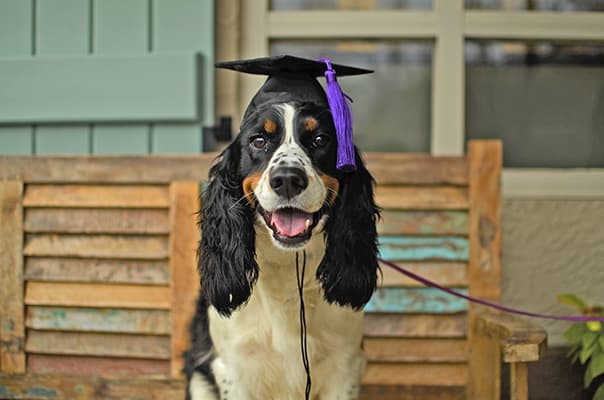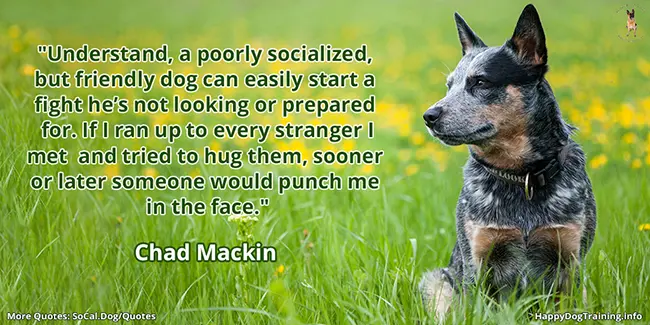Why Dog Training Near Me is Essential for Your Canine Friend
Why Dog Training Near Me is Essential for Your Canine Friend
Blog Article
Unlock Your Pet dog's Possible: Proven Pet Training Techniques for Success
Effective dog training is a nuanced procedure that pivots on comprehending canine behavior and using clinically backed methods. By integrating positive support, developing clear commands, and prioritizing socialization, canine proprietors can grow an efficient partnership with their pets.
Recognizing Pet Habits
Comprehending pet dog actions is important for reliable training and cultivating a positive partnership between pet dogs and their owners. A comprehensive grasp of canine body language, vocalizations, and social communications is important for identifying their emotions and demands. Canines connect mainly via non-verbal cues; for instance, a wagging tail may indicate enjoyment, while pinned ears can signify concern or submission.

Moreover, ecological variables play a substantial role fit a pet's habits. Adjustments in routine, new environments, or the existence of strange people can bring about stress or stress and anxiety in canines. Identifying these triggers makes it possible for owners to mitigate unfavorable responses and develop proper training approaches.
Eventually, a deep understanding of pet dog habits lays the foundation for successful training methods, enhancing both actions and the general bond in between the dog and its proprietor. dog training charlotte nc. This knowledge is crucial for cultivating a well-adjusted, happy canine companion
Positive Reinforcement Methods
Reliable training depends greatly on favorable support methods, which have actually been shown to generate substantial outcomes in forming wanted actions in canines. This strategy entails rewarding a dog for displaying particular actions, consequently raising the probability that these habits will be repeated. Rewards can take various kinds, consisting of treats, appreciation, playthings, or play, relying on what encourages the private dog.

It is vital to slowly terminate benefits as the pet learns the behavior, transitioning to periodic support. This strategy preserves the habits with time while protecting against dependency on consistent incentives. By concentrating on positive support, trainers can grow a relying on connection with their pet dogs, advertising a cooperative and healthy and balanced training atmosphere that boosts total obedience and efficiency.
Developing Consistent Commands
A basic element of effective pet training is the establishment of consistent commands. Uniformity in commands is important for reliable interaction between the fitness instructor and the pet dog. When commands are consistent, pets learn to link specific words with wanted habits, which increases the training procedure and improves understanding.
To develop regular commands, it is necessary that all family members make use of the same terms and motions. If one person uses "sit" while another claims "rest down," it can produce complication for the dog. Select clear, unique words for commands and ensure everyone entailed in the pet's training sticks to these options.
In addition, repetition is key. Enhance commands with frequent practice, making sure that the canine obtains sufficient possibilities to react appropriately. When a canine effectively adheres to a command, immediate positive support ought to follow. This can be in the form of treats, appreciation, or play, solidifying the connection between the action and the command.
Finally, be client. Developing constant commands takes time and initiative. With commitment and quality, you will certainly help your pet develop a solid understanding of expectations, inevitably bring about a mannerly buddy.
Socialization and Exposure
Interacting socially a pet dog is vital for fostering a well-adjusted and confident friend. This process entails exposing your canine to a variety of environments, individuals, and other animals to develop their social skills and flexibility. Early socializing, preferably in between the ages of three to fourteen weeks, is crucial, as it prepares for a pet dog's future actions.
Throughout socializing, aim to supply positive experiences in various settings, such as parks, hectic roads, and homes with other pets. Present your canine to numerous stimuli, consisting of audios, views, and scents, making sure that each encounter is gratifying. This direct exposure aids reduce anxiety and anxiousness, leading the way for a much more resilient dog.
Engaging in controlled team play sessions with other pet dogs can also enhance social skills, teaching your pet dog suitable communications and limits. Prioritizing socialization will substantially add to your dog's total joy and actions throughout their life.
Overcoming Common Educating Challenges

One more frequent concern is diversion. find more Canines might battle to concentrate in busy or strange setups. Slowly desensitize your pet to diversions by starting training in a quiet atmosphere and slowly presenting more stimulations as they become skillful (Dog training). Positive reinforcement strategies, such as deals with and praise, can keep inspiration and focus.
Furthermore, behavioral concerns like jumping or excessive barking can come to be aggravating. Address these by educating alternative actions, such as resting steadly when greeting guests. Consistency and perseverance are important; strengthen desired actions regularly and stay clear of abuse, which can lead to confusion.
Last but not least, acknowledge that each pet dog is special, and training timelines might differ. Dressmaker your technique to your pet's individual needs, and look for expert guidance if essential. With perseverance and the right techniques, getting over these obstacles can lead to a well-trained, delighted canine buddy.
Final Thought
Finally, unlocking a pet's prospective requires an extensive method that incorporates an understanding of canine actions, the application of positive reinforcement strategies, and the establishment of constant commands. Early socializing and exposure to varied environments even more boost a dog's versatility and self-confidence. By dealing with usual training challenges with customized methods and perseverance, a participating and unified relationship between pet and handler can be promoted, ultimately leading to a well-behaved buddy capable of flourishing in various situations.
Efficient pet training is a nuanced process that hinges on recognizing canine actions and utilizing clinically backed approaches.Recognizing pet dog actions is essential for efficient training and promoting a positive partnership between pets and their owners.Effective training depends greatly on favorable dog bark control reinforcement strategies, which have been revealed to produce considerable outcomes in forming preferred actions in dogs. When commands are consistent, dogs learn to associate certain words with desired habits, which speeds up the training procedure and boosts understanding.
In final thought, opening a pet dog's possible requires a thorough approach that integrates an understanding of canine actions, the application of positive support techniques, and the establishment of constant commands.
Report this page